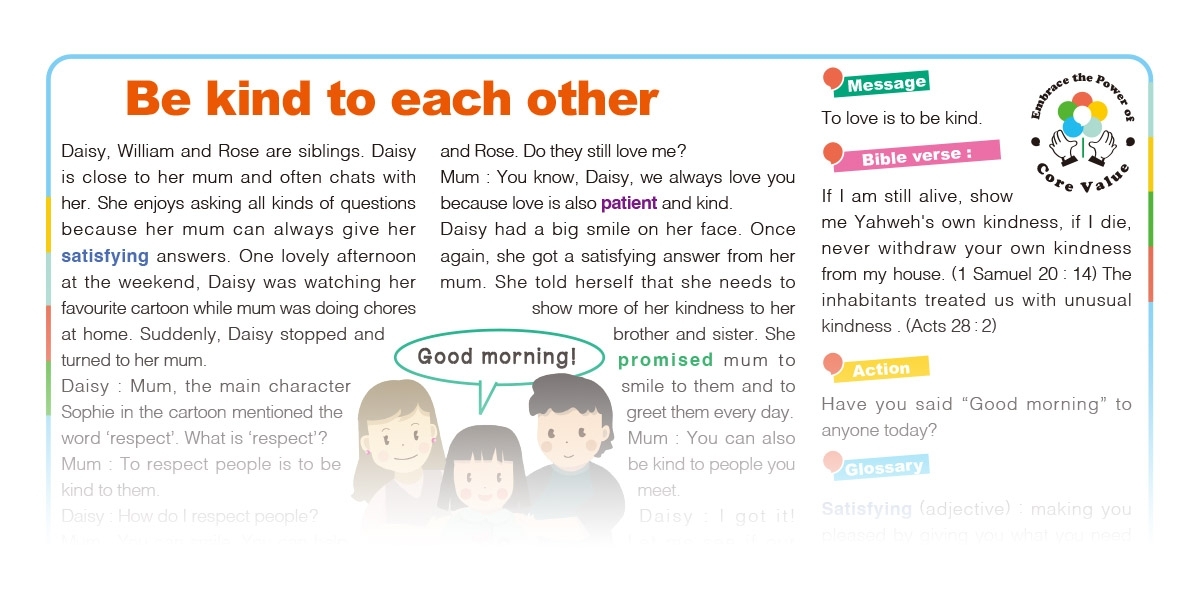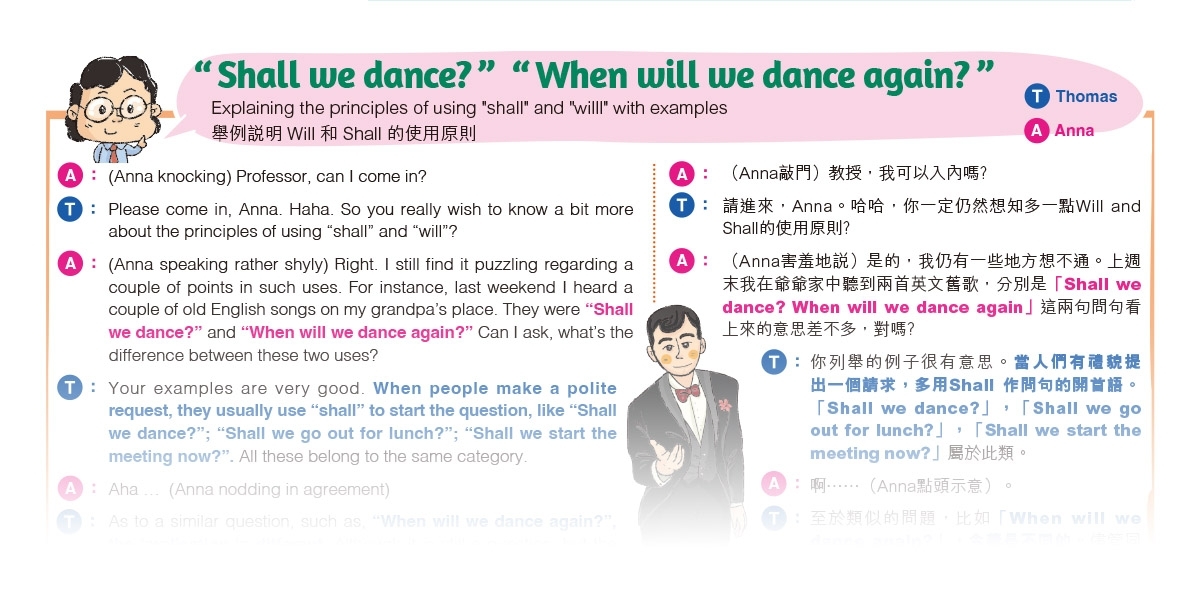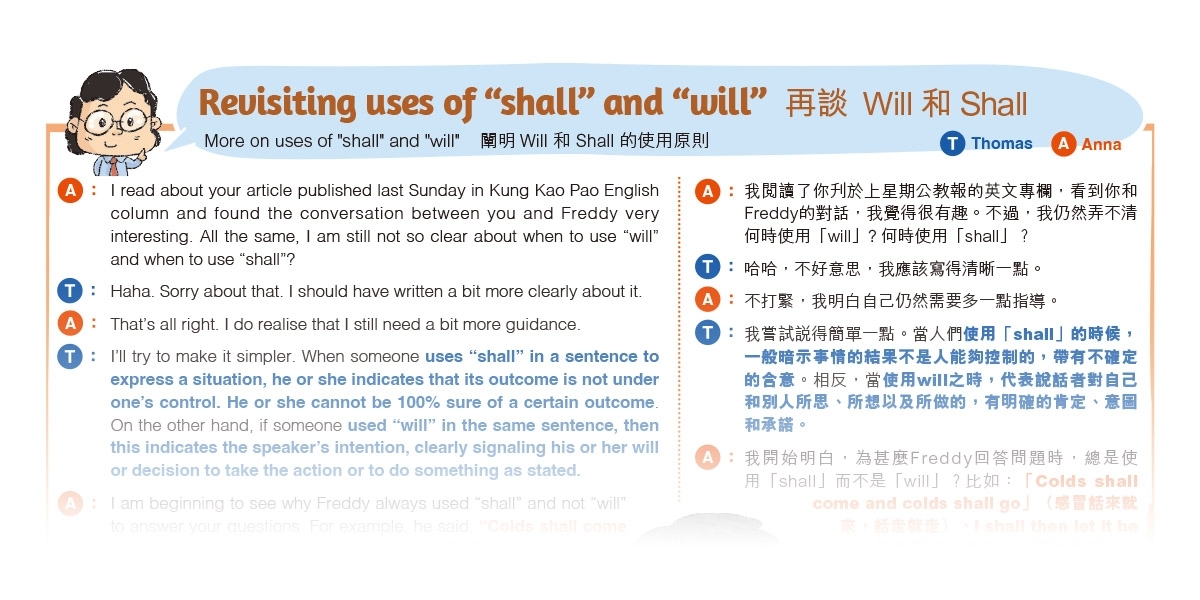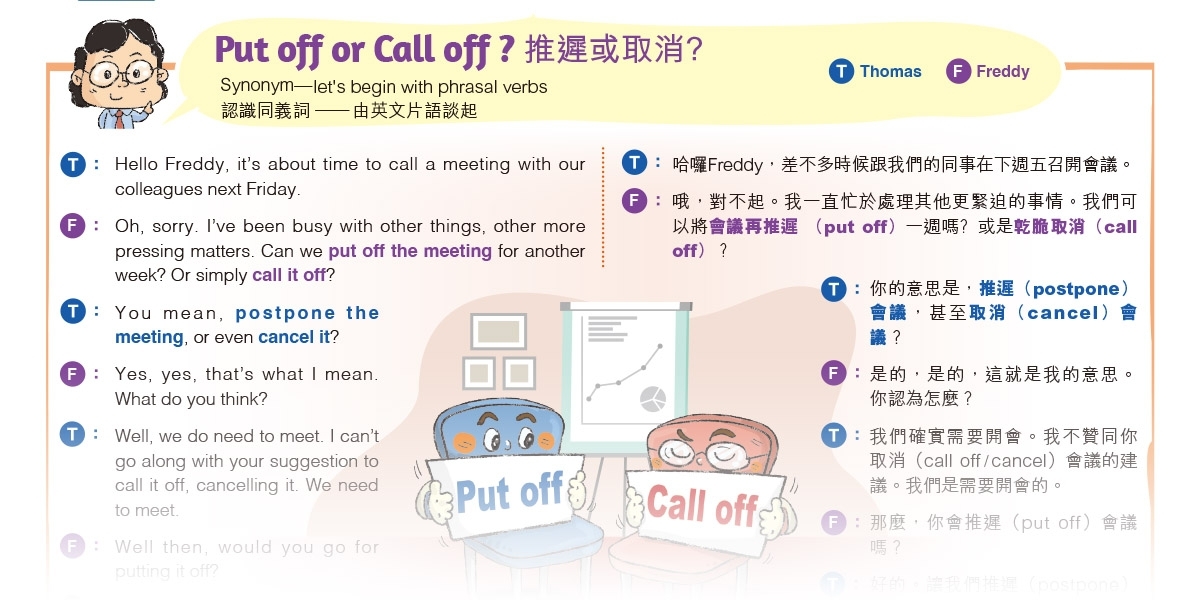昔日文章


Embrace the power of core value
2023.12.10
Be kind to each other
Daisy, William and Rose are siblings. Daisy is close to her mum and often chats with her. She enjoys asking all kinds of questions because her mum can always give her satisfying answers. One lovely afternoon at the weekend, Daisy was watching her favourite cartoon while mum was doing chores at home. Suddenly, Daisy stopped and turned to her mum.
Daisy : Mum, the main character Sophie in the cartoon mentioned the word ‘respect’. What is ‘respect’ ?
Mum : To respect people is to be kind to them.
Daisy : How do I respect people ?
Mum : You can smile. You can help people. You can greet them.
Daisy : Can I smile and say “Good morning!” in the morning ?
Mum : Yes, that is kind. To respect is to be kind.
Daisy : I’m sometimes rude to William and Rose. Do they still love me ?
Mum : You know, Daisy, we always love you because love is also patient and kind.
Daisy had a big smile on her face. Once again, she got a satisfying answer from her mum. She told herself that she needs to show more of her kindness to her brother and sister. She promised mum to smile to them and to greet them every day.
Mum : You can also be kind to people you meet.
Daisy : I got it! Let me see if our neighbour, Mrs. Jones is at home. I want to say “Good afternoon!” to her.
Mum laughed and hugged Daisy.
Message
To love is to be kind.
Bible verse:
If I am still alive, show me Yahweh's own kindness, if I die, never withdraw your own kindness from my house. (1 Samuel 20 : 14) The inhabitants treated us with unusual kindness . (Acts 28 : 2)
Action
Have you said “Good morning” to anyone today?
Glossary
Satisfying (adjective) : making you pleased by giving you what you need or want. 令人滿意的
Patient (adjective) : being able to continue doing something despite of difficulties without complain or being annoyed. 有耐性的
Promised (verb) : to tell someone that you will certainly do something. 承諾
The story is taken from CEO Project 1.0 – Love (Level 1) Unit 6 Daisy’s Questions


Learning English with Thomas
2023.04.30
“ Shall we dance? ” “ When will we dance again? ”
Explaining the principles of using "shall" and "willl" with examples
舉例說明Will 和 Shall 的使用原則
T: Thomas, A: Anna
A: (Anna knocking) Professor, can I come in?
T: Please come in, Anna. Haha. So you really wish to know a bit more about the principles of using “shall” and “will”?
A: (Anna speaking rather shyly) Right. I still find it puzzling regarding a couple of points in such uses. For instance, last weekend I heard a couple of old English songs on my grandpa’s place. They were “Shall we dance?” and “When will we dance again?” Can I ask, what’s the difference between these two uses?
T: Your examples are very good. When people make a polite request, they usually use “shall” to start the question, like “Shall we dance?”; “Shall we go out for lunch?”; “Shall we start the meeting now?”. All these belong to the same category.
A: Aha … (Anna nodding in agreement)
T: As to a similar question, such as, “When will we dance again?”, the implication is different. Although it is still a question, but the point is that the asker is expressing clearly his or her intention of inviting the other party to dance. What is more, he or she is quite confident that the dance will materialize.
A: I see. There can be connotation about it in such uses. I can see that I still need to spend more time to learn English better. (Thomas smiling in place of speaking again)
A: (Anna敲門)教授,我可以入內嗎﹖
T: 請進來,Anna。哈哈,你一定仍然想知多一點Will and Shall的使用原則﹖
A: (Anna害羞地說)是的,我仍有一些地方想不通。上週末我在爺爺家中聽到兩首英文舊歌,分別是「Shall we dance? When will we dance again」這兩句問句看上來的意思差不多,對嗎﹖
T: 你列舉的例子很有意思。當人們有禮貌提出一個請求,多用Shall 作問句的開首語。「Shall we dance?」,「Shall we go out for lunch?」,「Shall we start the meeting now?」屬於此類。
A: 啊⋯⋯(Anna點頭示意)。
T: 至於類似的問題,比如「When will we dance again?」,含義是不同的。儘管同樣是問句,不過其重點想表明提問者想邀請對方再次共舞的意圖,且胸有成竹對方會答允其請求。
T: 原來是有弦外之音,看來我還要花多一點時間學好英文文法。(Thomas笑而不語)


Learning English with Thomas
2023.04.23
Revisiting uses of “shall” and “will”
再談 Will 和 Shall
More on uses of "shall" and "will" 闡明Will 和 Shall 的使用原則
T: Thomas, A: Anna
A: I read about your article published last Sunday in Kung Kao Pao English column and found the conversation between you and Freddy very interesting. All the same, I am still not so clear about when to use “will” and when to use “shall”?
T: Haha. Sorry about that. I should have written a bit more clearly about it.
A: That’s all right. I do realise that I still need a bit more guidance.
T: I’ll try to make it simpler. When someone uses “shall” in a sentence to express a situation, he or she indicates that its outcome is not under one’s control. He or she cannot be 100% sure of a certain outcome. On the other hand, if someone used “will” in the same sentence, then this indicates the speaker’s intention, clearly signaling his or her will or decision to take the action or to do something as stated.
A: I am beginning to see why Freddy always used “shall” and not “will” to answer your questions. For example, he said, “Colds shall come and colds shall go”; and “I shall let it be”. That’s because he wasn’t sure himself when he would fall sick, and when he would get well again.
T: As a matter of fact, there are some more principles regarding such uses. But I am short on time today. Why don’t you come to my office next week and we’ll chat again.
A: Ah right. See you next week.
A: 我閱讀了你刋於上星期公教報的英文專欄,看到你和Freddy的對話,我覺得很有趣。不過,我仍然弄不清何時使用「will」? 何時使用「shall」?
T: 哈哈,不好意思,我應該寫得清晰一點。
A: 不打緊,我明白自己仍然需要多一點指導。
T: 我嘗試說得簡單一點。當人們使用「shall」的時候, 一般暗示事情的結果不是人能夠控制的,帶有不確定的含意。相反,當使用will之時,代表說話者對自己和別人所思、所想以及所做的,有明確的肯定、意圖和承諾。
A: 我開始明白,為甚麼Freddy回答問題時,總是使用「shall」而不是「will」?比如:「Colds shall come and colds shall go」(感冒話來就來,話走就走)、I shall then let it be (我會順其自然吧)。因為當時他也不確定自己何時生病,何時康復。
T: 其實,何時使用Will和Shall,還有其他的原則。今天我趕時間,不如下星期到我辦公室,我們再談一談。
A: 好啊!下星期見。


Learning English with Thomas
2023.03.05
Put off or Call off ?
推遲或取消﹖
Synonym— let's begin with phrasal verbs
認識同義詞 —— 由英文片語談起
T:Thomas,F:Freddy
T: Hello Freddy, it’s about time to call a meeting with our colleagues next Friday.
F: Oh, sorry. I’ve been busy with other things, other more pressing matters. Can we put off the meeting for another week? Or simply call it off?
T: You mean, postpone the meeting, or even cancel it?
F: Yes, yes, that’s what I mean. What do you think?
T: Well, we do need to meet. I can’t go along with your suggestion to call it off, cancelling it. We need to meet.
F: Well then, would you go for putting it off?
T: OK. Let’s postpone it for a week. That is, we’ll meet Friday week.
T: 哈囉Freddy,差不多時候跟我們的同事在下週五召開會議。
F: 哦,對不起。我一直忙於處理其他更緊迫的事情。我們可以將會議再推遲 (put off)一週嗎﹖或是乾脆取消(call off)?
T: 你的意思是,推遲(postpone) 會議,甚至取消(cancel)會議?
F: 是的,是的,這就是我的意思。你認為怎麼?
T: 我們確實需要開會。我不贊同你取消(call off / cancel)會議的建議。我們是需要開會的。
F: 那麼,你會推遲(put off)會議嗎?
T: 好的。讓我們推遲(postpone) 一週吧。也就是說,我們在週五見面。






